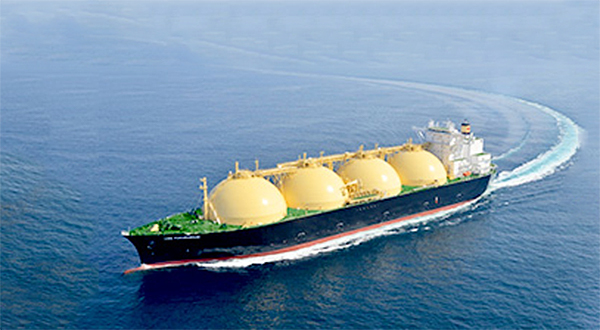ISLAMABAD: In the absence of firm orders for liquefied natural gas (LNG) from power producers and weak demand from Sui gas companies, the Ministry of Energy (Power Division) has barred Pakistan LNG Limited (PLL) from importing additional cargoes, which will lead to under-utilisation of the second LNG terminal and higher terminal charges.
The PLL management, one has learnt on good authority, had been pushing the ministry of energy to ask power producers to place firm LNG demand, but power plants were using expensive furnace oil, burdening consumers with higher electricity tariffs, reports The Express Tribune.
At present, according to sources, PLL is importing three cargoes in a month, half the capacity of the second LNG terminal. The petroleum division secretary, who is on the PLL board of directors, has stopped the management from importing additional LNG cargoes for the next one month.
PLL is a wholly owned subsidiary of Government Holdings Private Limited (GHPL), which is owned by the government of Pakistan. A majority of representatives on the PLL’s board are from the Ministry of Energy who ensure that all decisions, including how LNG can be imported, are in line with government guidelines.
Earlier, the government had directed PLL to supply all the imported LNG to Sui Northern Gas Pipelines Limited (SNGPL). Accordingly, PLL planned imports in line with the terminal capacity of 600 million cubic feet per day (mmcfd) or around six cargoes per month.
PLL and SNGPL negotiated and struck an agreement in January 2017 to govern LNG supplies. Later in a letter on October 27, 2017, SNGPL endorsed the demand for 600 mmcfd.
However, towards the end of 2017, SNGPL communicated a reduction in demand due to seasonal variations and prolonged testing and commissioning activities by new power plants. Consequently, the Ministry of Energy directed PLL to reduce LNG imports.
According to company officials, PLL has always planned imports to utilise full terminal capacity, but before the award of cargoes, demand confirmation is sought from SNGPL, which has not been forthcoming.
It was due to a lack of coordination among Power and Petroleum Divisions, absence of commitment by power producers and presence of powerful lobbies that were pushing to run power plants on expensive furnace oil.
In terms of losses due to reduced imports as well as imposition of penalty by the Oil and Gas Regulatory Authority (Ogra), the Economic Coordination Committee (ECC) had agreed that all charges associated with the LNG re-gasification terminal would be included at actual value while determining the re-gasified LNG sale price.
Terminal charges comprise two major components – fixed (capacity charges) and variable (utilisation and flexibility charges).
Capacity charges for any infrastructure project are directly linked with the cost of developing the infrastructure and are payable regardless of its utilisation. Per unit impact of such charges increases in case of reduction in the quantity handled.
Earlier, Ogra had allowed the same for two LNG re-gasification terminals, but, while determining the re-gasified LNG sale price for May 2018, it decided not to follow the ECC guidelines and prevalent procedure.
Following issuance of clarifications by the ministry, Ogra revised the determination on May 25, 2018 and all charges associated with the LNG re-gasification terminal were again included in the LNG sale price.
Due to the reduced LNG demand, inefficiency has prevailed in the value chain as the re-gasification terminal is not being optimally utilised.




